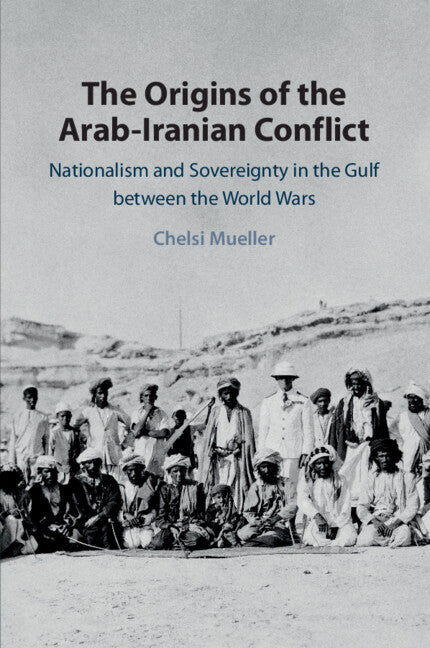Freshly Printed - allow 8 days lead
Couldn't load pickup availability
The Origins of the Arab-Iranian Conflict
Nationalism and Sovereignty in the Gulf between the World Wars
The first book to examine the interwar period origins of the present-day Arab-Iranian conflict.
Chelsi Mueller (Author)
9781108733410, Cambridge University Press
Paperback / softback, published 16 June 2022
290 pages
22.8 x 15.2 x 1.6 cm, 0.438 kg
'Mueller's research is meticulous and innovative, with impressive use of Persian and Arabic sources, and her book is well structured and clearly written.' B. Tavakolian, Choice
The interwar period marked a transition from a Gulf society characterized by symbiosis and interdependency to a sub-region characterized by national divisions, sectarian suspicions, rivalries and political tension. In this study, Chelsi Mueller tells the story of a formative period in the Gulf, examining the triangular relationship between Iran, Britain and the Gulf Arab shaykhdoms. By doing so Mueller reveals how the revival of Iranian national ambitions in the Gulf had a significant effect on the dense web of Arab-Iranian relations during the interwar period. Shedding new light on our current understanding of the present-day Arab-Iranian conflict, this study, which pays particular attention to Bahrain and the Trucial states (United Arab Emirates), fills a significant gap in the literature on the history of Arab-Iranian relations in the Gulf and Iran's Persian Gulf policy during the Reza Shah period.
Introduction
1. States and tribes in the pre-modern Gulf
2. British policy in the Persian Gulf between the world wars
3. The rise of Reza Khan and Iran's Persian Gulf policy, 1919–1925
4. Reza Shah's Persian Gulf policy, 1925–1941
5. The Trucial States, Iran and the British
6. Bahrain, Iran and the British
Conclusion.
Subject Areas: Middle Eastern history [HBJF1], Regional & national history [HBJ], General & world history [HBG], History [HB], Humanities [H]


